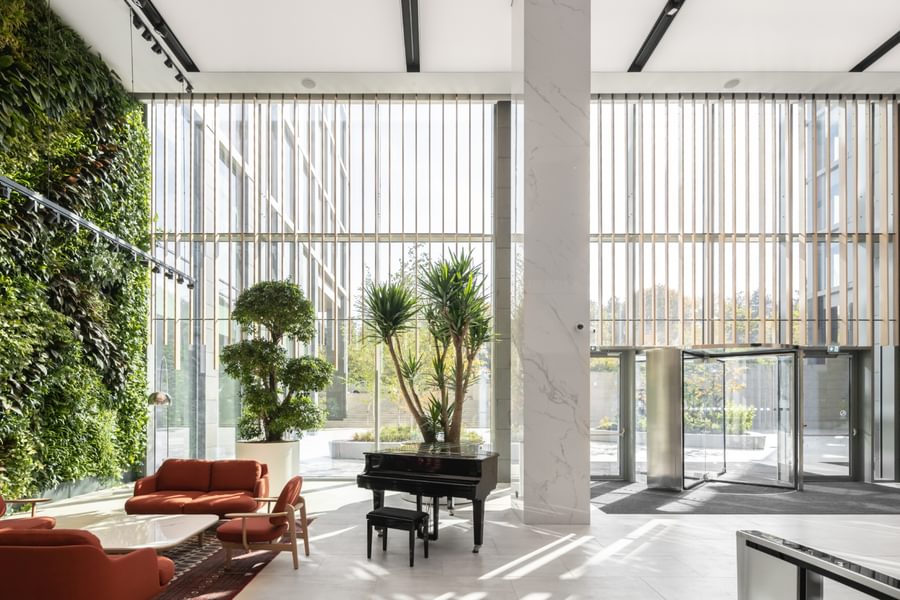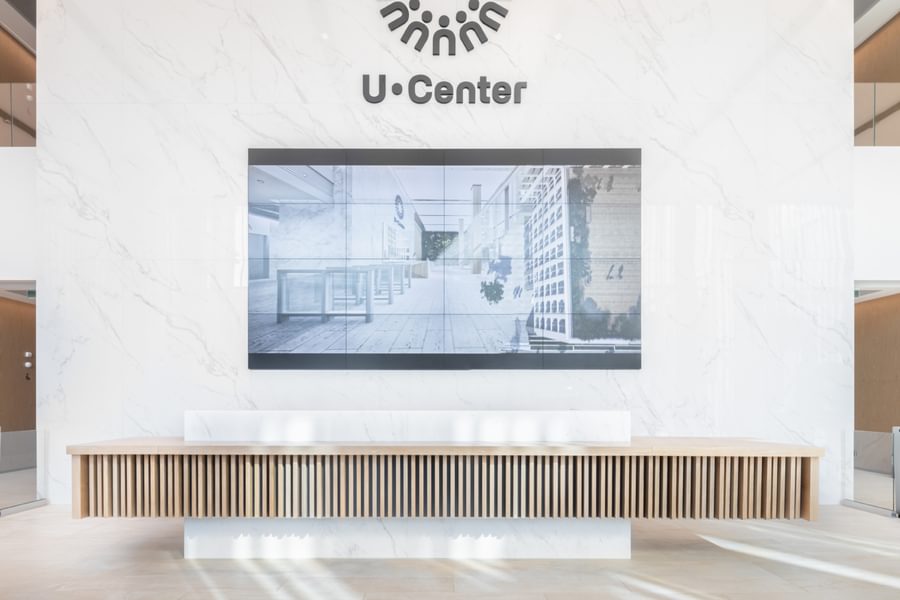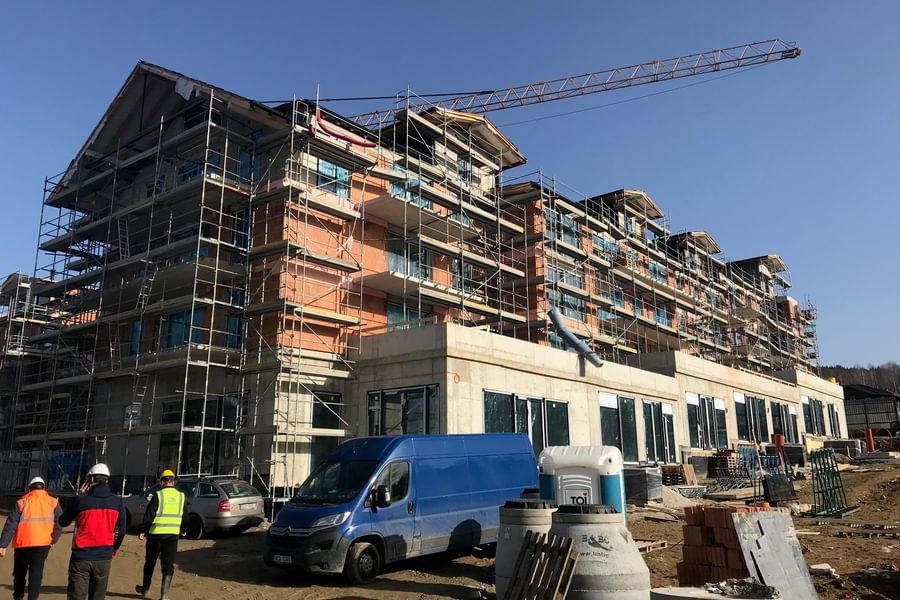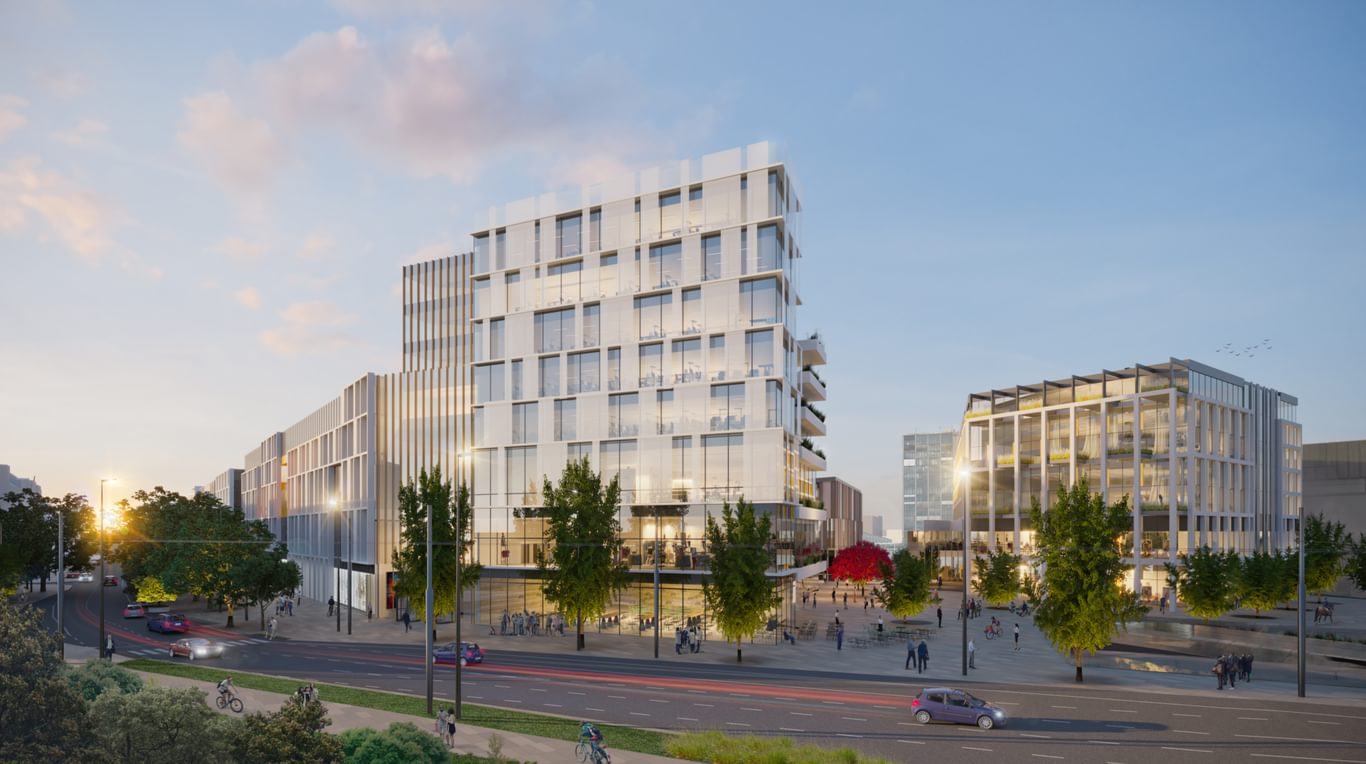STUDIO FOCUS: Prague. Ten minutes with Group Board Director Jon Hale and Director Filip Pokorný
Although we are keen to put it behind us, there’s no doubt that the last two years of the COVID-19 pandemic has had a huge impact on the world economy. Group Board Director Jon Hale and Director Filip Pokorný take us through how the Prague studio has responded to changing market requirements with more of an international outlook and how the city of Prague is keen to reposition itself as a high-end tourist destination.
The impact of COVID-19
In February and March 2020 people were travelling back from their skiing holidays in Italy, where the COVID-19 outbreak in Europe began. There was a relatively fast response from the Czech government and people also took the initiative in wearing masks in public spaces, before they were mandated. The country got through the first wave with low rates of infection. What happened after this is another story! With constantly changing rules and a lot of uncertainty, the population quickly tired of the restrictions that changed on a regular basis, and compliance dropped rapidly. This resulted in some of the worst statistics in Europe and a high number of cases and mortality. Overall, it has not been a success story.
During the first lockdown, we largely worked from home as advised at the time, but not for long, just between April-June 2020. Since then, we have been working flexibly between home and the studio, but predominantly in the studio. We have left it to personal choice and overall, we have managed our projects successfully over the last two years.
Economically the Czech Republic has suffered enormously because of the impact on international tourism. Cities like Prague, Český Krumlov and Karlovy Vary are very reliant on tourists. Pre-pandemic the country had over twenty million visitors a year, which dropped off dramatically during 2020. A lot of hotels have closed their doors permanently. Some of our projects related to hospitality were put on hold because our clients could not anticipate how the situation would evolve.
There has been some consolidation in terms of hotel ownership. Some operators, or owners who were less invested, have just decided to sell up. However, at the same time several new hotel brands have entered the market, which is very exciting. We are currently working on one 5* hotel, which promises to be an important addition to the offer in Prague.
There is a perceptible change in quality of the hospitality offering, with a shift towards higher standards and a more sustainable type of tourism, which are good signs for our region. The country needs to shrug off the negative connotations of cheap beer, stag parties and trashy souvenirs that have tarnished the reputation of Prague and other cities in the region. This is a beautiful country with a rich cultural heritage, incredible musical traditions and a lot to offer the discerning visitor.
Accelerating our use of technology
As an international business, we had been using videoconferencing tools such as Teams and WebEx for several years, but during the pandemic they quickly became the default for meetings and our clients adapted to these forms of communication as well. The pandemic has certainly accelerated our use of the available technology and has forced us to become more innovative in how we work together as a group.
Travel restrictions affected how we worked on some of our projects outside the Czech Republic. For a while we couldn’t fly, or even drive across borders in Europe, so site visits and meetings would happen remotely. We managed this situation quite well, even if it meant someone walking around the site videoing the progress and sending us regular photographic reports. Thankfully, we did get to attend key meetings for sampling and snagging, so everything worked out well on the projects competed in the last two years. However, it was a new way of working, but one we can learn from and incorporate into our future workflow on new projects.
U-center – phase 1, Bucharest. This office building, with ground-floor retail space, is part of a much larger development that we’re currently working on. Phase 2 is on site and phase 3 is on the drawing board. The façade design makes use of natural stone and aluminium composites to create a strongly urban downtown feel, but with extensive upper-level terraces and a roof garden providing attractive outdoor spaces in which the building’s users can relax and interact.
Our sector focus
Over the last few years, we have diversified our workload and now have a very interesting mix of projects in different sectors. Traditionally, the split was roughly 1/3 retail, 1/3 offices. 1/3 “other”, which included residential and masterplanning. We now have a broader range of projects, including interior design, hospitality, refurbishments and a growing proportion of mixed-use projects, which we are focusing on.
J8 office park, Bucharest. Two eight-floor office buildings are set over a shared two-level parking structure, with ground-floor shops, restaurants and a gym. One whole building was leased to Ubisoft and the other one is currently being fitted out for a range of tenants in the IT and financial industries sectors.
Sustainability and responsible design
Sustainability is a key part of our ethos and our approach to all projects. It has been of interest since we opened the Prague studio in 1998, but we really started to focus on this aspect of our projects about 15 years ago, when a key client asked us to explore ways of optimising his buildings. The initial objective was to find ways to lower the energy consumption in order to reduce the service charges to tenants. But what started out as a purely commercial endeavour, trying to create a competitive advantage in a very tough market, quickly escalated into a concentrated effort to improve all the performance parameters of the projects. We looked in detail at the performance of the facades, the use of heat pumps, natural ventilation and renewable energy, the creation of bio-diversity habitats around the buildings and considered the wellbeing of the end users.
These are now all considered standard approaches to sustainability. Over the years the Prague studio has developed a strong track record in delivering sustainable projects. We have an in-house sustainability consultant and we have the certificates to back up our achievements.
We are now working hard to reduce the amount of embodied carbon in the buildings we design and understand the whole lifecycle impact of our projects. We are working with our colleagues in the UK, with environmental consultants and engineers, to help us achieve our objectives over the coming years.
Lipno Resort, CZ This is a combination of residential and hospitality, including 79 lakeside residences and landscaped gardens. There is a feature pier extending into the lake, accommodating a two-level restaurant, roof-top bar and a floating swimming pool.
This project is a good illustration of how our market is changing, post-COVID. The brief is evolving to reflect changes in demand for the respective uses with a growing focus on leisure and community activities, which we believe will rebound strongly when things get back to normal. It’s more about the quality of the outdoor spaces, the F&B offer, the introduction of more nature around and inside the buildings. We’re concentrating much more on the experiential and wellbeing aspects together with our clearer focus on the sustainability objectives.
Our vision for the future is to continue to grow our studio with new talented designers and to focus on achieving more work in the wider CEE region. We have learned a huge amount in the last 20 years and are continuing to improve our design skills and sustainability credentials so we can offer the best possible services to our clients in the region.
Amadeus Plzen Americka, Pilsen This 160,000m2 landmark mixed-use development includes retail, workplace, residential, an extensive F&B offer, as well as cultural and leisure uses. It has a covered, internal street, open streets and terraces and its situation on the banks of the Radbuza river offers excellent conditions for waterside residential.




